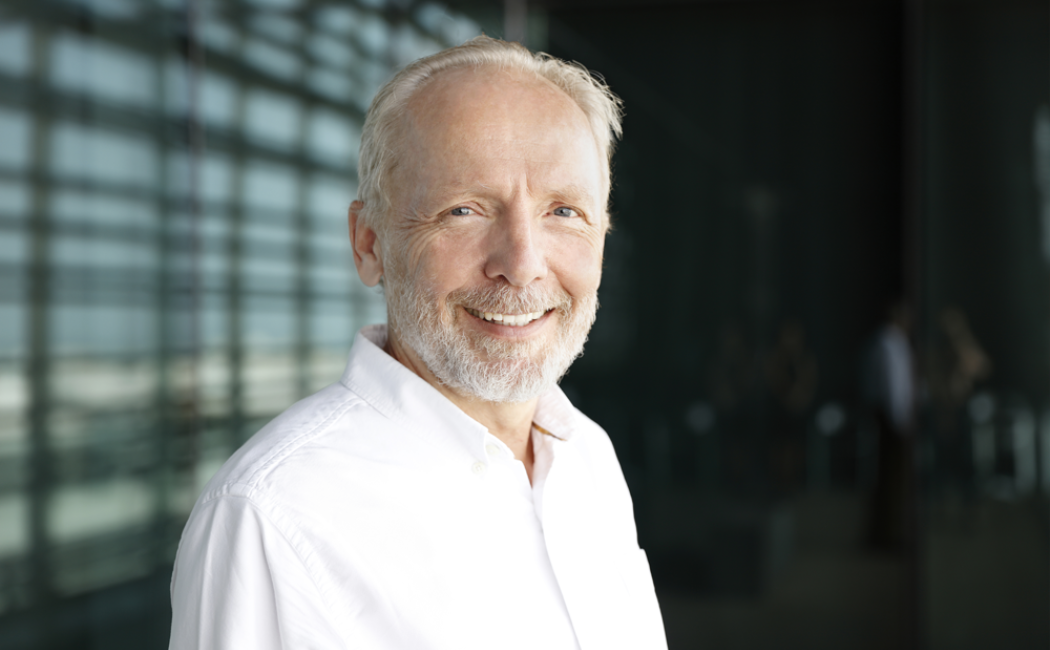.jpg?sfvrsn=39330263_0)
.jpg?sfvrsn=39330263_0)

17 June, 2017


ANPERC: Can you tell us more about your education and professional experience?
Prof. Vahrenkamp: Sure, I started my university experience in Germany as a geology student. Early on – to be honest - I was perhaps not very committed, "I was just exploring." When I went to the University of Michigan as an exchange student for a year I became a lot more serious about it and then decided to continue there with a master in engineering geology. During my time at Michigan I became fascinated with carbonate rocks, their formation in tropical seas and coral islands and how they transform from sediments to rock during later diagenesis. So, I decided to dive deeper into this and do a Ph.D. in carbonates at the Rosenstiel School of Marine and Atmospheric Sciences of the University of Miami in Florida.
Perhaps you know that about half of the oil and gas in the world is found in carbonate rocks, so oil companies always have had a strong interest in students studying carbonate geology. Our institute in Miami was closely associated with oil companies. So, when I finished my Ph.D it was decision time: go into industry or stay in academia. When I received an offer to work for Shell in Europe my sense of adventure prevailed: try something new and explore the world. This dream certainly came true because my career brought me over the years to live in Holland, Malaysia, Oman and Abu Dhabi, and to travel to many other places all over the world.
ANPERC: When did you know you wanted to be a geologist?
Prof. Vahrenkamp: Well, it also has to do with adventure. I came from a high school with a concentration in natural sciences. I love the outdoors, camping and being on and in the water. I didn't have much of an idea at that time of what a geologist was, but I imagined long excursions to remote places in this world. Out of that thinking came the idea of why not try geology. Later, at the University of Michigan and also in Miami we did go on many excursions to remote and exotic places. I became really inspired by very passionate and excellent professors who combined fieldwork with lab experiments. They really caught my imagination and my attention.
ANPERC: How is your research applicable to the academia and industry?
Prof. Vahrenkamp: The work on carbonate rocks is really intimately associated with the development of life on earth because all the carbonates rocks come from living organisms. As life forms have evolved over the eons so have carbonate rocks. Furthermore, carbonate rocks form in many different environments, from tropical seas to cold water areas and also in lakes. From above the water line to the deep ocean. All of this causes carbonate rocks to have enormous variety in shapes and forms. For the oil industry this poses an enormous challenge: differences in the rock bodies and their pores from km to nano-meter scale impact the performance and recovery of hydrocarbon reservoirs. There is an endless challenge to better understand the rocks and their pores to find more oil and maximize the recovery from existing reservoirs. This is also the reason why I have been in the Middle East for almost 20 years now with almost all the reservoirs here found in limestones.
But there are other aspects as well: as carbonate rocks document the evolution of life on earth through time we can learn much from studying them about what happened to life forms as a consequence of changing climate and environments. This is very relevant for the challenges humans are facing nowadays. Also many other resources beyond hydrocarbons are found in limestones: water, minerals and heat for geothermal energy. All of these aspects have a profound impact on humans and life on earth. So, there is plenty to study and discover to better understand carbonate rocks and what they can tell us about the past and the future.
ANPERC: What are your expectations as a professor in KAUST?
Prof. Vahrenkamp: My expectations are certainly engulfed once again in a sense of adventure! There is the combination of high power research and teaching with the location in the heart of the Arabian continent. Saudi Arabia not only has world class surface exposures of those limestones that hold a large part of the worlds remaining hydrocarbon resources, it also has diverse environments in the Red Sea and the Arabian Gulf where carbonate rocks are presently being created. This combines an incredible outdoor laboratory with the world class facilities of KAUST. If you add an academic environment that encourages free thinking and a diverse population from all over the world you truly have a world class opportunity to advance science. And that is a thrilling adventure to me.
ANPERC: Do you mind telling us something about you that nobody knows?
Prof. Vahrenkamp: I love sports, mainly water sports! In my free time you will likely find me on or in the water. I love kitesurfing, scuba diving and swimming. I have done a lot of competitive sailing, mainly on catamarans. And if that is not enough, I try my luck in triathlons.
Thank you Professor Vahrenkamp!
Click here to visit Prof. Vahrenkamp's Carbonate Reservoirs Geology Group website.